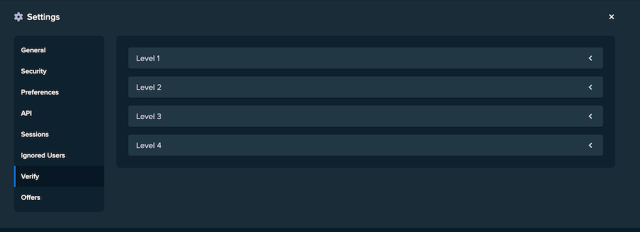With the growing popularity of online gambling platforms like Stake.com, questions about privacy and security are becoming increasingly prevalent. One of the most frequent inquiries is whether Stake.com requires Know Your Customer (KYC) verification. In this complete guide, we’ll explore this subject and provide answers to some of the most pressing questions.
» Sign Up To Stake (+$1K Bonus)
What is KYC?
Know Your Customer, or KYC, is a regulatory requirement in many industries, especially those dealing with financial transactions. KYC procedures involve the verification of a customer’s identity to mitigate risks of fraud, money laundering, and other illicit activities. KYC ensures that businesses know who their customers are and can demonstrate due diligence in verifying this information.
Does Stake.com Require KYC?
Stake.com occasionally requires KYC verification. Although users are allowed to sign up and start playing games without providing detailed personal information, there are circumstances where KYC is required. This usually happens when a user attempts to make a significant withdrawal, or when their activity triggers certain internal security flags.
Stake.com KYC Procedure
The KYC process at Stake.com typically involves providing the platform with a government-issued ID and proof of residence. The ID can be a passport, driver’s license, or national ID card, and the proof of residence can be a utility bill, bank statement, or lease agreement.

Once these documents are submitted, Stake.com’s security team reviews the provided information to confirm the user’s identity and address. After the review, the user is either verified and can continue using their account, or they are asked to provide additional information.
This process may seem invasive, but it is a crucial part of safeguarding users and Stake.com against potential fraud and illegal activity. Stake.com is committed to maintaining a secure platform that adheres to legal requirements, and KYC is a significant part of that commitment.
The Importance of KYC for Stake.com Users
While KYC might seem like an inconvenience, it provides several key benefits. Most notably, it helps prevent fraudulent activity. By ensuring all users are verified, Stake.com can detect and deter potential fraudsters, thus protecting legitimate users and their funds.
Moreover, KYC procedures help ensure that Stake.com remains in compliance with legal and regulatory requirements. This safeguards the platform from potential legal repercussions and allows it to continue providing services to users.
Conclusion
In conclusion, KYC is a mandatory requirement on Stake.com, triggered under certain circumstances such as making significant withdrawals or other suspicious activities. Although it might seem inconvenient, it is a vital step in ensuring user and platform security, protecting against fraud, and adhering to legal and regulatory obligations. Always remember that Stake.com’s primary goal is to provide a secure, trustworthy, and enjoyable platform for all its users.
FAQs
How long does the KYC process take at Stake.com?
The KYC verification process at Stake.com can vary in length depending on a variety of factors, including the volume of requests the security team is handling. Generally, users can expect the process to be completed within a few days after submitting their documents.
What if I fail the KYC process at Stake.com?
If you fail the KYC process at Stake.com, the security team will typically reach out to you for additional information or clarification. In case of multiple unsuccessful attempts, your account may be temporarily restricted until the issue is resolved.
Is my personal information safe with Stake.com?
Stake.com is committed to maintaining user privacy and security. The platform uses advanced encryption technologies to protect users’ personal information, and only necessary staff members have access to this information for verification purposes. Your information is not shared with third parties without your explicit consent.
